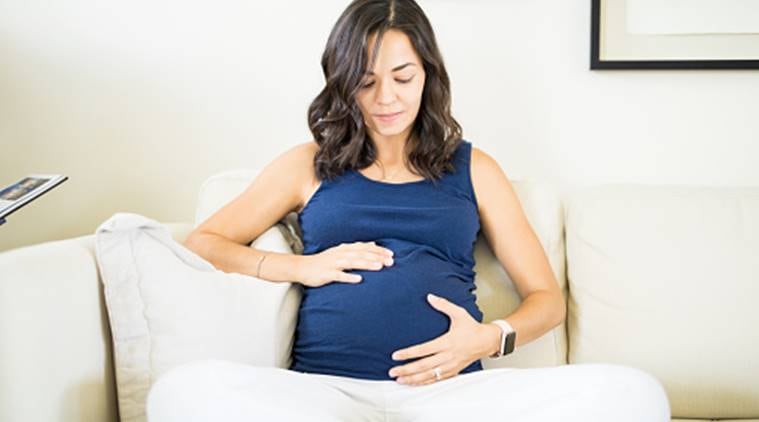I'm 5 Months Pregnant and I Don't Feel the Baby Move
 Foetal movement is a sign of the baby's well-being. (Source: Getty Images)
Foetal movement is a sign of the baby's well-being. (Source: Getty Images)
Why does the baby move in womb and what does it indicate? At what stage of pregnancy can mothers expect the baby to start moving? When should they be worried? Express Parenting got Dr Seema Sharma, senior consultant gynaecologist and high risk pregnancy expert, Cloudnine Group of Hospitals, Chandigarh, to answer all your questions about foetal movement.
When do foetal movements begin?
The baby starts moving after about 10 weeks of pregnancy. This can be seen on an ultrasound very clearly in the first trimester itself.
When does the mother start feeling the baby's movements in the womb?
This varies for women who are first-time mothers and those having a second pregnancy. Usually, the mother would start appreciating the movements after the first five complete months and into the sixth month, while second-time mothers would feel it at the onset of the fifth month itself. Some, however, are very sensitive and they can feel the movements by the end of four complete months.
Why do foetal movements indicate?
Foetal activity or movement is a sign of the baby's well-being. If the baby in utero feels any sort of distress due to any reason like reduced blood flow or placental insufficiency, the movements are reduced. They first become lazy and sluggish and sometimes, the heartbeat also goes if you neglect the early signs of decreased movement.
Read| Prenatal care: How to bond with your baby in the womb
Do mothers need to keep track of foetal movement?
In the ninth month, mothers must keep a daily foetal movement count (DFMC). An active and healthy baby would even move up to 50-60 times a day. Babies in the womb, like newborns, sleep for almost 20 hours. In the remaining three to four hours, they are usually very active. Each mother is aware of the baby's movement pattern; some move more when the mother is hungry and some after a meal. For some, the baby's movements are more when they lie down. That's because when mothers move around, the baby feels a rocking motion which puts them to sleep. So, at night, when the mother lies down, they become active. The same thing happens after delivery too, when babies are mostly nocturnal and sleep during the day.
When should a mother be worried?
Mothers have to count at least 10-12 movements in a day. In case of lesser count or if the usual activity is reduced by 50 per cent, you need to inform the doctor immediately. This is more reliable in the eight and ninth month. Sometimes, mothers raise a false alarm early, around the fifth or the sixth month but that is not reliable.
Read| Birth defects: Causes, symptoms and prevention
Do foetal movements decrease by the end of pregnancy?
The movements do not decrease ideally, if the baby is healthy. But mothers might not feel them as much during this time. When babies are small at around 24-26 weeks, their weight is only 700-800 gms. There is enough space and amniotic fluid for the baby to move at this stage. Towards the completion of the term, babies get bigger. So there is obviously lesser space for them to somersault. So mothers then assume that the foetal movements have decreased. But that is only their perception. A healthy baby continues to kick or jab even towards the end of pregnancy.
Can mothers induce foetal movements?
Some mothers say their baby in the womb moves when they have some chocolate. Usually, when mothers eat, babies get glucose, which prompts them to move. There are others who say listening to music makes the baby kick. That's because babies like stimulus and there is scientific evidence to prove that.
I'm 5 Months Pregnant and I Don't Feel the Baby Move
Source: https://indianexpress.com/article/parenting/health-fitness/baby-not-moving-in-the-womb-all-you-need-to-know-about-foetal-movements-6198002/
0 Response to "I'm 5 Months Pregnant and I Don't Feel the Baby Move"
Post a Comment